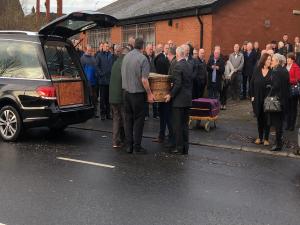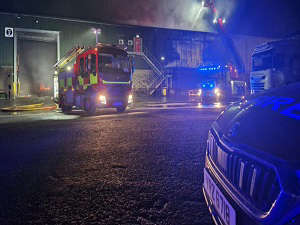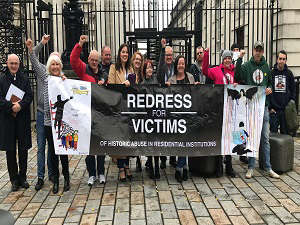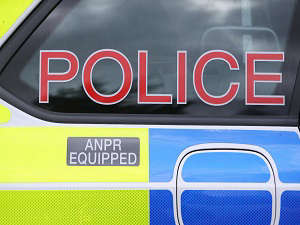
By Michael McHugh, Press Association
Irish political leader Sean Garland helped transform republicanism from its narrow nationalist outlook into a much broader socialist movement, mourners said.
The former Workers' Party president died from cancer on Thursday aged 84.
Dozens of people gathered outside a social club off the Falls Road in West Belfast to pay their respects as his remains arrived for a wake.
His Belfast-born widow Mary received the hugs and sympathy of well-wishers.
Daughter Caoimhe was also present as the wicker coffin was wheeled from the hearse without ceremony, flowers or flags into a social club close to the Royal Victoria Hospital.
Mr Garland took part in the IRA's border campaign in the 1950s but after the cessation of violence was a leading proponent of the socialism which split the organisation and led to the rise of the Provisionals.
A Workers' Party spokesman, who did not want to be named, said: "He was one of the people in the 1960s who had completely re-thought and transformed the concept of what it was to be republican and moved that away from a very narrow, nationalist perspective, into a much broader political socialist, Marxist, communist analysis of society.
"He said himself many times that we have seen the consequence of what the narrow nationalism meant in subsequent years after that."
He was involved in an attack on the Royal Ulster Constabulary barracks in Brookeborough in Co Fermanagh on January 1 1957, which led to the deaths of fellow IRA members Sean South and Fergal O'Hanlon, an event marked by song and lore in republican circles.
Mr Garland was part of a group of senior republicans, including Cathal Goulding and Tomas Mac Giolla, influenced by internationalist communism during the 1960s.
The spokesman added: "One of his quotes from that period subsequently has been that he realised that people like him were sitting in backrooms in conspiracies while working-class people were out on the streets, demanding change and improvements in their material conditions and it is possible that republicans were divorced from that reality."
Throughout the violence of the 1980s and 1990s, the Workers' Party promoted dialogue about peaceful co-existence in Northern Ireland.
The Official IRA split with the Belfast-led Provisionals in 1970. Mr Garland was a key figure in the Official IRA ceasefire in 1972.
Veteran Workers' Party leader Tom French was among those present as Mr Garland's remains arrived.
Gemma Weir from north Belfast knew Mr Garland well.
She said: "Sean Garland was an absolute giant of the Workers Party. A life-long socialist and a very inspirational person, especially for me coming into the party.
"He taught me quite a lot, his courage and conviction, the fact that he always stood by what he believed in and also how he led the party, good times and bad times."
She said he was quiet and spoke in measured terms but always knew the right thing to say.
"On a personal level, he was a very strong man but when it came to the children, my children, anybody's children, he was the real granda, he would melt with them."


 Firefighters tackle large fire at Coleraine recycling plant
Firefighters tackle large fire at Coleraine recycling plant
 Institutional abuse survivors urged to come forward before deadline passes
Institutional abuse survivors urged to come forward before deadline passes
 Motorcyclist dies in County Antrim road accicent
Motorcyclist dies in County Antrim road accicent
 ATM stolen from Co Antrim service station
ATM stolen from Co Antrim service station
 IntoMedia Group Announces Charity Partner for 2025
IntoMedia Group Announces Charity Partner for 2025